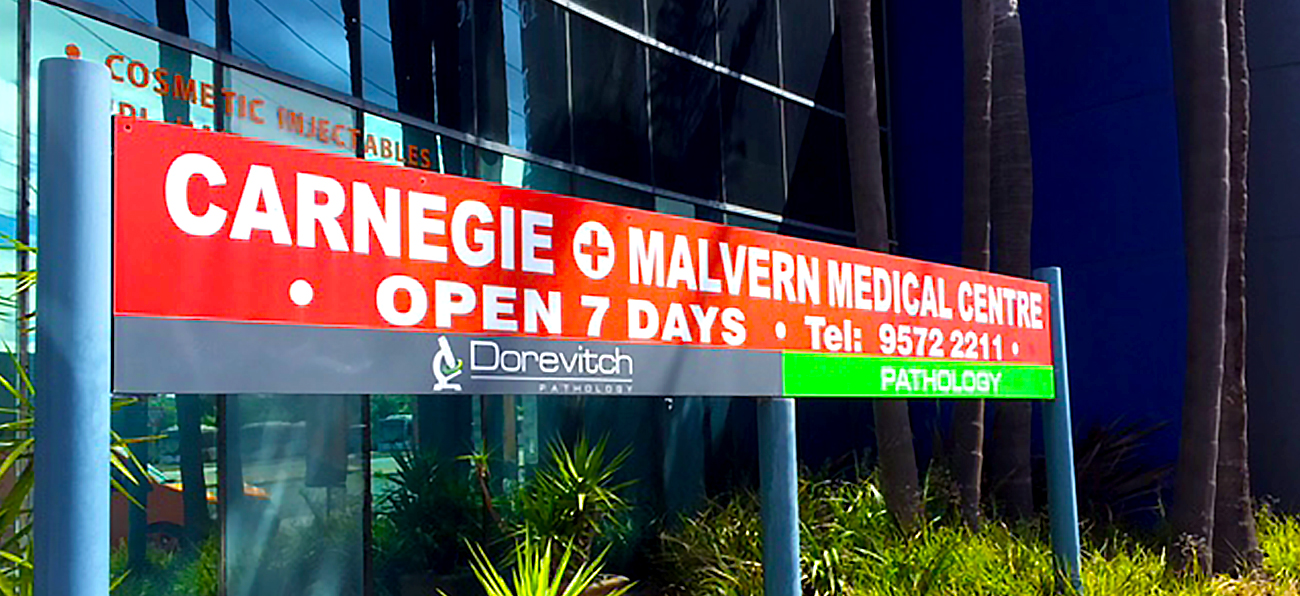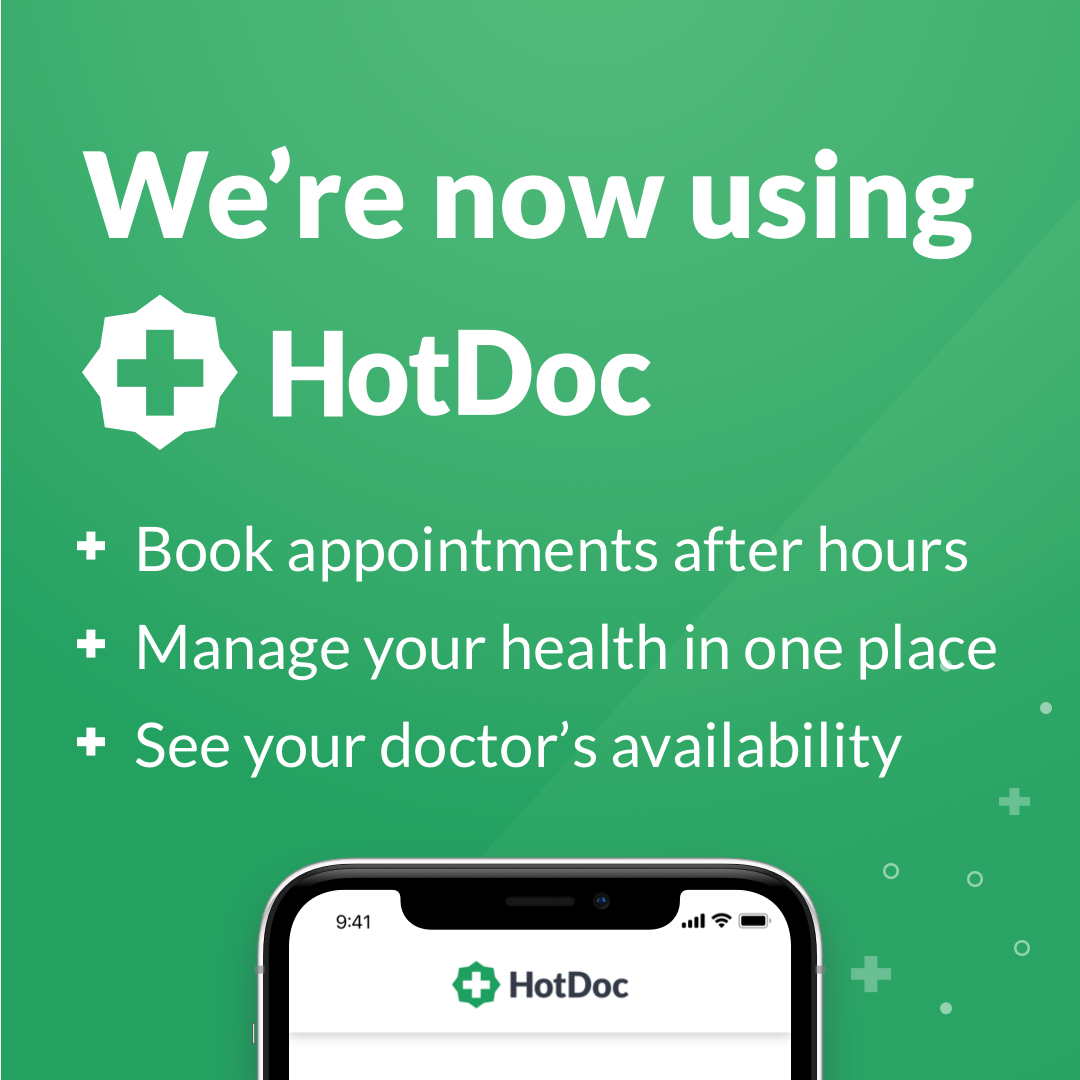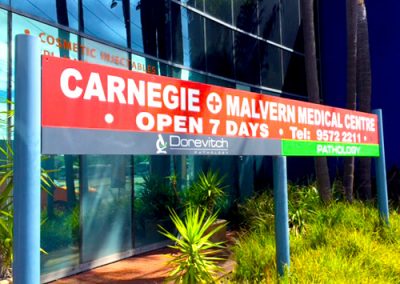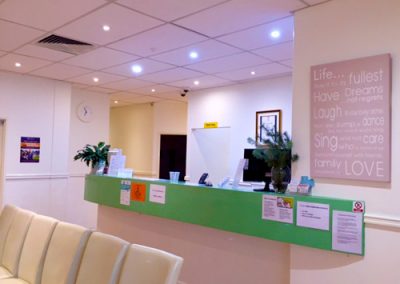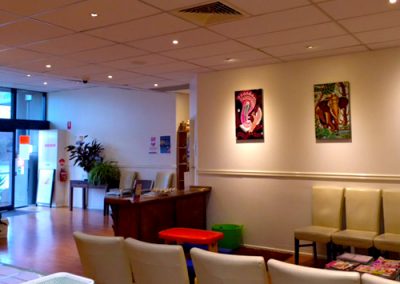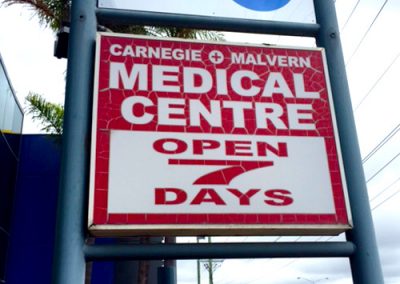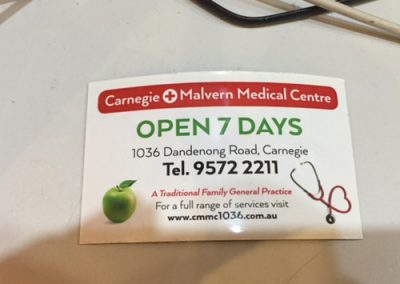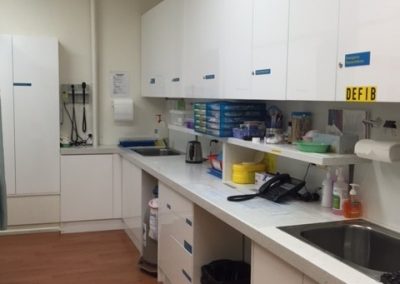ABOUT CARNEGIE MALVERN MEDICAL CENTRE
Carnegie and Malvern Medical Centre is a traditional family practice, and committed to providing its patients with the highest standard of care for the benefit of each patient’s health and wellbeing. The clinic is just a short walk from Carnegie train station. Parking access is via the service lanes on Dandenong Rd/Princes Highway. The clinic is wheelchair accessible.
CMMC CLINIC TOUR
OUR SERVICES

GENERAL PRACTICE
We treat acute and chronic illnesses and provides preventive care and health education to patients.

FACIAL TREATMENT
Cleanses, exfoliates, and nourishes the skin, promoting a clear, well-hydrated complexion and can help your skin look younger.

PEDIATRICS
Concerned with the health of infants, children, and adolescents; their growth and development;

CLINICAL PSYCHOLOGY
Concerned with the assessment and treatment of mental illness and disability.

FAMILY MEDICINE
Is centered on lasting, caring relationships with patients and their families.

SPEECH PATHOLOGY
We work with people who have a variety of disorders that include the inability to produce certain sounds, speech rhythm and fluency problems, and difficulties with their voices.
NEWS
What is Treacher Collins syndrome?
Treacher Collins syndrome is a rare medical condition caused by a genetic mutation. It affects the development of bones and other tissues of the face and results in abnormalities in the head, face, and ears.Other names for this syndrome are mandibulofacial dysostosis,...
Ten causes of epigastric pain
Ten causes of epigastric pain Epigastric pain is a common symptom of an upset stomach, which can be due to long-term gastrointestinal problems or just the occasional bout of indigestion. 1. Indigestion Epigastric pain is felt just under the ribcage and is generally...
BOOK AN APPOINTMENT NOW!

